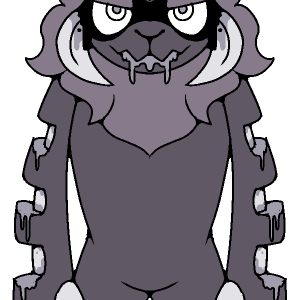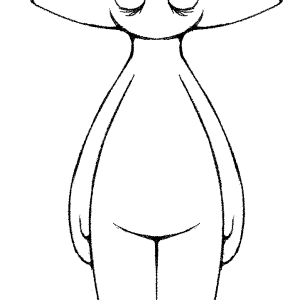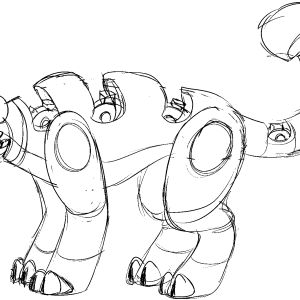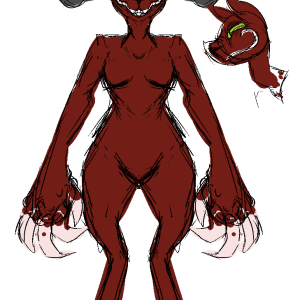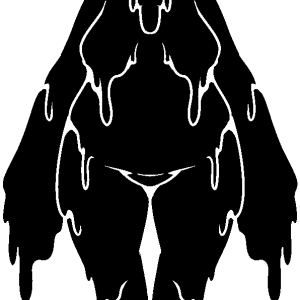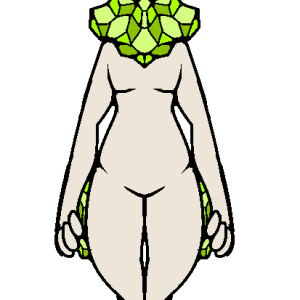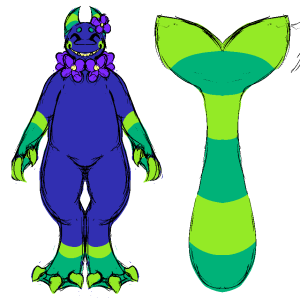Table of Contents
Divine Hierarchy
As well as its various species and wildlife, there also exists on Morbit a class of entities known as gods. These beings are powerful, unique, and often have a large influence on surrounding societies, if not being the reason that they exist at all. Many gods take leadership positions in their respective cultures, but amongst eachother they are organised according to a different system.
Attributes
All gods have two special attributes that affect their powers and appearance: Domains, and Motifs. Most gods just have two of each, though it is possible to have any amount, as long as it isn't zero. Domains and motifs can be anything, any concept or object or action, from altruisim to tripping. Motifs are usually physical however, as the god's appearance draws heavily upon them and they will generally have powers related to the direct creation or manipulation of their motifs. Domains tend to be more subtle in their effects, and are less predictable.
Gods are also organized into three different tiers: lesser, greater, and high, in order of power. A god's tier is set when it is first created, and while it is hypothetically possible to increase it, this is incredibly rare. Within a certain tier, a god's skill and strength when using their powers can still vary wildly, and a lower tier god can overpower a higher one if the lower is especially strong, or the higher especially weak.
Winning a TCP session increases a god's divine power, as does receiving a large amount of worship, but only very slightly. Gods have the power to raise mortals or other gods up to the same tier as them, but doing this is considered taboo and is looked upon extremely harshly among gods.
If a previously mortal individual ascends to godhood, they will gain motifs and domains based on their life and personal experiences up to that point. It is generally difficult to predict what the results will be beforehand, but any scrap affinities the individual has are usually a good indicator. Once they become a god, their motifs and domains will be set and not change any further, no matter what they experience.
If a god reproduces (however they may do so), the child will display the motifs of the parent god/gods on their body, but will not have any control over them or powers, and will not be greatly different from the offspring of a mortal species.
Powers
Beyond abilities from their domains and motifs, all god have certain innate powers that set them apart from mortals. All gods are naturally scrap-sensitive and conditionally immortal, meaning they cannot die from age or disease. Gods are also immune to horror radiation.
Demons
All gods have the power to make individuals of a lower tier than themselves (including mortals and animals) a demon. Demons gain the same conditional immortality and increased scrap sensitivity that gods have (stacking with any scrap affinities they might already have), as well as inheriting control over whatever the god's motifs are.
The demon cannot refuse their demonhood, and it is only removed without the god's consent if either the god or demon dies; however, the demon is not especially forced to obey their god in any way, beyond ordinary methods of compulsion. If a mortal is granted demonhood, they cease aging until it is lifted, at which point they begin aging regularly again. If a god who was a demon for another god were to make a demon of their own, both gods' motifs would be available to this demon, although at weaker strengths.
Zones
Gods can claim zones as their own, carving out certain areas on Morbit's surface. Almost all land on Morbit is currently claimed by one god or another, though the oceans are left untouched. The main purpose of claiming a zone is to protect it from the natural elements. Usually, this means keeping it warm, as Morbit is actually rather far from its sun and would in ordinary circumstances be unable to support much life, but can also include stopping environmental degradation such as rust, erosion etc.
More powerful gods can have more direct control over features of the zone, being able to influence things like the weather, ecology and even the local gravity. When a god dies, it's zone becomes unclaimed, and over a short period of time reverts back to its natural state.
Abilities by tier
| Power | Demons | Lesser | Greater | High |
|---|---|---|---|---|
| Conditional immortality | Yes | Yes | Yes | Yes |
| Scrap sensitivity | Yes | Yes | Yes | Yes |
| Motif-related powers | Can control | Can control | Can create | Can mass-create |
| Appoint demons | No | Yes | Yes | Yes |
| Domain-related powers | No | Passive abilities | Active abilities | Powerful active abilities |
| Promote other beings to godhood (up to same tier) | No | Yes | Yes | Yes |
| Create gods | No | No | Lesser | Greater |
| Create life (flora, fauna, sapient) | No | No | Yes | Yes |
| Claim and maintain zones | No | No | Yes | Yes |
| Claim and maintain regions | No | No | No | Yes |
| Create (domain-related) planes | No | No | No | Yes |
| Access “godspace” | No | No | No | Yes |
Origin
At the beginning of Morbit's history, when it was just a cold, barren planet, the original high gods found themselves dropped onto its surface, with no knowledge or memories except for how to create things. Over a very long period of time, they slowly learned how to create life, filling Morbit with the many species and wildlife it has today, as well as other gods.
Such creation is responsible for the vast majority of gods in existence, as it is an ability possessed by all Greater gods and above. Gods can also spontaneously coalesce from their environment, though it extremely rare. Recently, the high god Wax set up another way for gods to be born, through forming as a collective in a TCP session and then winning it, though this is also quite rare.

